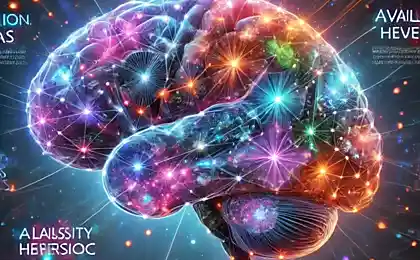187
6 Dangerous Illusions: How the Ego Masquerades as Personal Growth

When Growth Becomes Fake: Recognize Ego Traps
A study by Harvard Business School (2023) found that 68 percent of people who are actively engaged in self-development unconsciously cultivate narcissistic traits. How do you distinguish a true transformation from a dangerous game with your own psyche? We understand the mechanisms of six key illusions.
1. Escape to Productivity: When Discipline Becomes an Obsession
Daily performance marathons are a frequent sign of impostor syndrome. Disturbing markers:
- Hard time tracking every hour
- Fear of "empty" time
- Depreciation of small achievements

2. Spiritual Materialism: Trading in Enlightenment
Psychologist Chogyam Trungpa's term describes the substitution:
- Collecting courses instead of practice
- Demonstration of “awareness” in social networks
- Using Spiritual Terms for Manipulation
3. Toxic positivity: the ban on humanity
A study in the Journal of Personality (2021) found that negative emotions are constantly suppressed.
- Reduces empathy by 40%
- Provoking psychosomatics
- It distorts the perception of reality
4. Intellectual Darwinism: Excellence through Knowledge
A phenomenon described in Ryan Holiday’s book The Ego Is the Enemy:
- Using complex terminology to demean
- Obsession with “expert” status
- Fear of asking 'stupid' questions

5. Trauma as a Brand: Exploitation of Suffering
Psychologist Peter Levine warns of public "selling" of wounds:
- Blocks genuine healing
- Creates a dependence on pity
- It distorts personal history.
6. Analysis paralysis: Self-development as procrastination
Endless reading of psychology books without action is a classic example of cognitive distortion.
- Fear of practical application of knowledge
- Perfectionism in Planning
- The illusion of “preparation”
Glossary
Narcissism: Excessive narcissism with a lack of empathy (DSM-5).
Cognitive dissonance: Mental discomfort in the conflict of beliefs and actions.
Spiritual materialism: Replacement of internal work with external attributes of “development”.
Toxic positivity: Rejection of negative emotions as a social norm.
Relevance confirmed by studies 2023-2024 from Harvard Business Review and American
8 Intelligent Hobbies: How Complex Hobbies Train Your Brain
How to build trusting relationships while remaining yourself: the science and practice of mutual understanding























